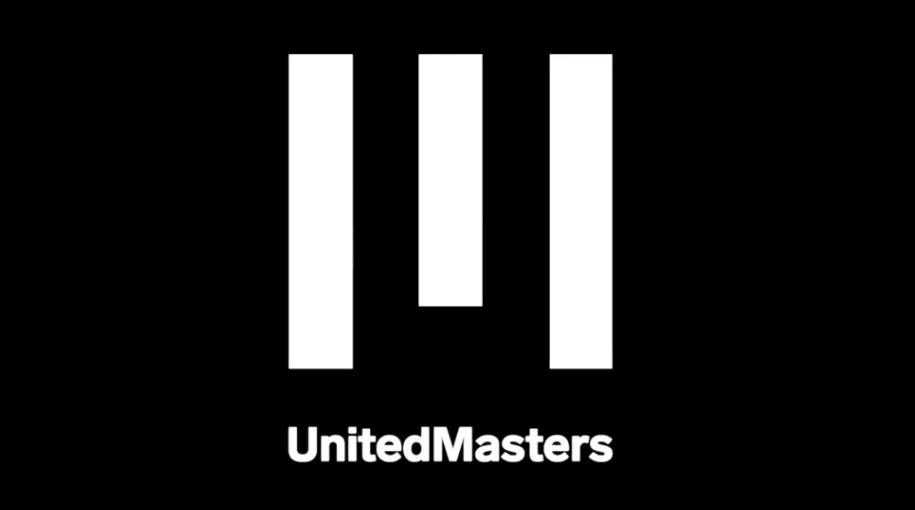Next-gen startup UnitedMasters plans to replace record labels … with help from Google

“For too long, artists have had to surrender their independence and creative freedom to make it in the music industry. Until now.”
Next-gen artist services and music technology platform UnitedMasters has thrown the gauntlet down to record companies.
The San Francisco-based UnitedMasters’ challenge to record companies is this: you’re obsolete and exploitive. The music industry has changed to streaming and promoting concert tickets and merchandise but you haven’t kept up or set up for it.
Your core operation is to sign artists, develop them, market them and sell their music.
But artists are now able to record themselves, and anyway, music fans are drifting away from “buying” music.
Record companies, who’ve started to thrive again due to streaming and signing up partnerships with, or buying, technology and brand companies, might obviously disagree.
UnitedMasters, though, is certainly creating a buzz within the industry.
Led by former Interscope Records President Steve Stoute, UnitedMasters launched with US$70 million in funding from Google’s parent company Alphabet, 20th Century Fox and venture capital firm Andreessen Horowitz.
The new platform is being bullish, promoting itself as an alternative to the dying record label model.
It is offering a slicked up package of a combination of distribution, targeted digital marketing and analytics which is offered by Kobalt (which Google also invested in) and BMG, and DIY solutions as CD Baby and TuneCore.
Says Stoute, “We want to build a business that helps musicians, which is my passion, and also helps brands find a much more specific way of investing their money in the category of music.”
Artists pay UnitedMasters a rate to distribute their music across the internet, to the likes of Spotify, YouTube and SoundCloud. (UnitedMasters will provide financial and marketing support for the promising new artists, as identified by its data analytics).
The platform and artists divide the royalties. Artists keep the rights to their master recordings.
UnitedMasters will additionally use the analytics, identifies the listeners, builds the artist a CRM tool.
The platform officially launched overnight, but it has been secretly operating with a growing 40 strong staff already working with 1000 artists.
Stoute declares, “Being able to operationalize independence was the goal of United Masters. There needs to be 250,000 Chance The Rappers.”
Chance The Rapper bypassed record labels and distributed his music directly to streaming services. He won three Grammys this year and is worth $9 million. Last year he made history by having his mixtape Coloring Book only for streaming – and went on to “sell” an equivalent of 500,000 albums.
Stoute expands on his approach: “Look at music like gaming. You monetize the game to all the people who are most engaged. I wanted to bring that theory and thinking to music.”
He’s not the latest in the global recorded music market (worth $15.7 billion) who is learning from the $108.9 billion gaming industry.
One is to target and reward the superfans (or “whales”) who provide the most money for artists.
Stoute will bring in his 13-year old ad agency Translation into UnitedMasters to work with brands to target specific music consumer sectors.
For instance, if a car maker wants to get an ad before a certain demographic, the platform would search through its data to find who’s expressed interest in buying a car in the future, and then place an ad before them featuring a song about a car.
“Brands are spending hundreds of millions of dollars trying to get to young people by using music as the vehicle. Being able to use music data and making it actionable so they can target and speak to these fans, that’s super important.”
Two of UnitedMasters’ major investors explain why they got involved.
Investor and huge hip-hop fan Ben Horowitz, who is helping to expand the team, recounts: “Steve thought: What if there were a platform that instantly enabled musical artists to market themselves globally as effectively as the top technology companies market to their customers.
“Such a platform would free musicians from dependencies on the old model while increasing their income tenfold. It would create unprecedented intimacy between artists and fans, while making artists truly independent.”
Google founder Larry Page, a former drummer, said he was surprised to find that music acts don’t already routinely have the tools to track which fans spend the most on their music, and target them to shift concert tickets and merchandise.

































